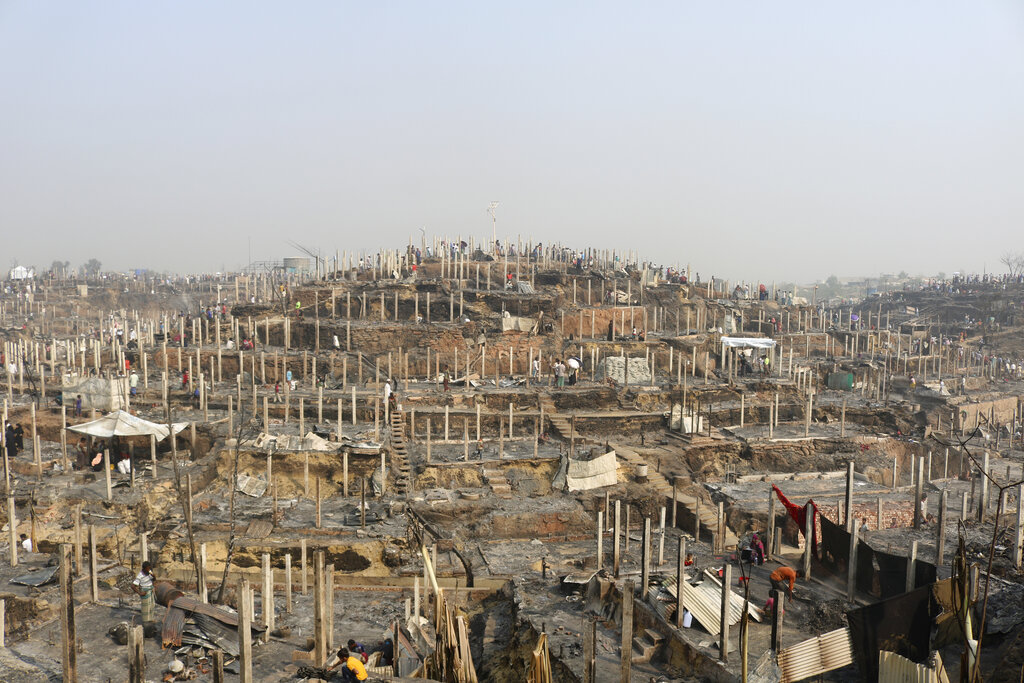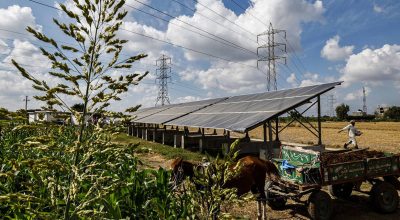
Kazi Mohammad Jamshed
As of July 2021, only $366 million of the total required, around $1 billion, humanitarian assistance fund for the Rohingyas has been disbursed. The disbursement has declined to 34 percent, which used to be within the range between 72 to 75 percent of the total required funds in the first three years of the Rohingya influx since 2017. This downward trend in foreign donations raises a question, “Who will bear the financial burden of supporting the Rohingya refugees in Bangladesh?”

The year 2021 marks the fourth anniversary of the military-backed inhumane “clearance operation” followed by an massive exodus of hundreds of thousands of Rohingyas what UNHRC dubbed as a “textbook example of ethnic cleansing.” While the rest of the world had turned blind eye to Rohingyas, Bangladesh generously extended temporary shelter to them. These stateless people have equal rights to lead a dignified life and build a stable future in Rakhine like everyone else which can be guaranteed only if the world communities express solidarity with them. Stable funding commitment from long-standing donors is a prerequisite for food security, safe water, healthcare, and non-food items for 1.1 million Rohingyas. The ultimate sustainable solution, safe and sustainable repatriation, seems a distant reality now, even after signing two repatriation agreements, due to Myanmar’s unwillingness to create conducive conditions. Until repatriation becomes possible, the world must stand by the world’s one of the largest refugee-hosting country Bangladesh to uphold the dignity of the ‘world’s most persecuted minority’ of our time.
As one crisis competes with another, newly emerged crisis usually dissipates the global concentration with respect to fund and focus towards existing one, thereby worsening the former. Donors’ unwillingness to open purses as much as the crisis demands may further intensify the crisis. The foreign aid for Rohingyas has started declining after the onset of economic fallout triggered by covid-19. Moreover, the Taliban’s takeover in Afghanistan had created a new humanitarian crisis by displacing millions of Afghans. This crisis has resulted in the significant slashing of foreign donations to Rohingyas by shifting the spotlight the on ongoing Afghan crisis.
Along with incurring social decadence and environmental degradation, Bangladesh is also bearing a substantial economic burden for supporting the persecuted Rohingyas. The Center for Policy Dialogue (CPD), a Bangladeshi thinktank, reported that Bangladesh has to spend around $1.22 billion every year on Rohingya refugees, which will bump up with the growth of population, the rise of inflation, and decreasing trend in foreign aid. CPD also estimated that once repatriation starts, it will take 12 years if 300 Rohingyas are being repatriated every day, assuming current population growth remains constant. According to CPD, around $7 billion would be required to host and support the Rohingya refugees for the first five years without repatriation. It is next to impossible for a country like Bangladesh to afford this colossal expenditure as it relies heavily on external debt to meet its budget deficit.
The Rohingya crisis is the result of a long-smoldering conflict which may be a catalyst for new sources of conflict. Tremendous funding shortage may lead to the emergence of newer challenges e.g., extortion, prostitution, human trafficking, drug dealing, radicalization as well as intra-groups and inter-group conflicts such as killing of Rohingya leader Mohibullah. Moreover, the financial shortage will have a devastating impact on children and women who require age and gender-sensitive interventions. Ignoring these challenges may be a boomerang not only for Bangladesh but also for the rest of the world by deteriorating regional stability. As international aid is dwindling, Bangladesh faces increased challenges in managing this beleaguered community. Besides, the unavailability of funds at the right time may create immense pressure on Bangladesh to deliver essential services to these displaced refugees. Many Local NGOs are now providing humanitarian assistance to Rohingya with own fund which will not sustain longer without external donations.
The best way to counter the aforementioned challenges is to ensure regular financial flow which cannot be borne alone by Bangladesh. To plug the funding gap, the Bangladesh government may initiate a joint fund-raising campaign to pool contributions from individual and institutional donors by convincing them to extend hands for distressed Rohingyas who have scant access to basic needs. Bangladesh should leave no stone unturned to make sure that the Rohingya issue is not sidelined and international focus remain on it. To assume international attention, Bangladesh must keep the agenda alive through strong diplomatic maneuvers pointing out how insufficient fund is intensifying the trauma already inflicted upon Rohingyas. Bangladesh must echo this issue in different regional and global platforms to steer humanitarian response on the heel of declining funding. Moreover, it is equally important to emphasize on effective utilization of funds which can be done by slashing foreign employees and involving more local NGOs.
Rohingya communities are in dire need of international support now than ever before. A well-coordinated humanitarian response is needed to alleviate the sufferings of “forcibly displaced Myanmar nationals”. The world community must wake up to keep the pledges committed at the beginning of this crisis and should not pass the burden on to Bangladesh alone as the country is not in a position to take the burden anymore. The “Do No Harm” principle must be followed while delivering lifesaving assistance to Rohingya to avoid inadvertently fueling any new conflicts.
The shared efforts of the global community are needed to culminate the condition required to end the plight of persecuted Rohingyas. The world must not turn its back on these vulnerable refugees and should stand shoulder-to-shoulder with Bangladesh to fill the staggering funding gap- lion’s share of which comes from foreign donors. The UN should play the role of torchbearer in bringing the global donors together to address the financial strain highlighting how this may create an acute human rights crisis and worsen the circumstances imaginable. Though safe repatriation is the ultimate sustainable solution to the protracted Rohingya crisis, it is equally crucial to redress Bangladesh’s growing challenges in hosting Rohingyas through ensuring comprehensive financial assistance. Failure of repatriation and funding shortage involves the risk of untoward developments, the toll of which the international community will not be able to avoid.
Writer’s Bio: Kazi Mohammad Jamshed, strategic affairs and foreign policy analyst, working as an Assistant Professor at the Department of International Business, University of Dhaka.
He can be reached at [email protected]
Editor’s note: The views expressed here are of the writer himself.















